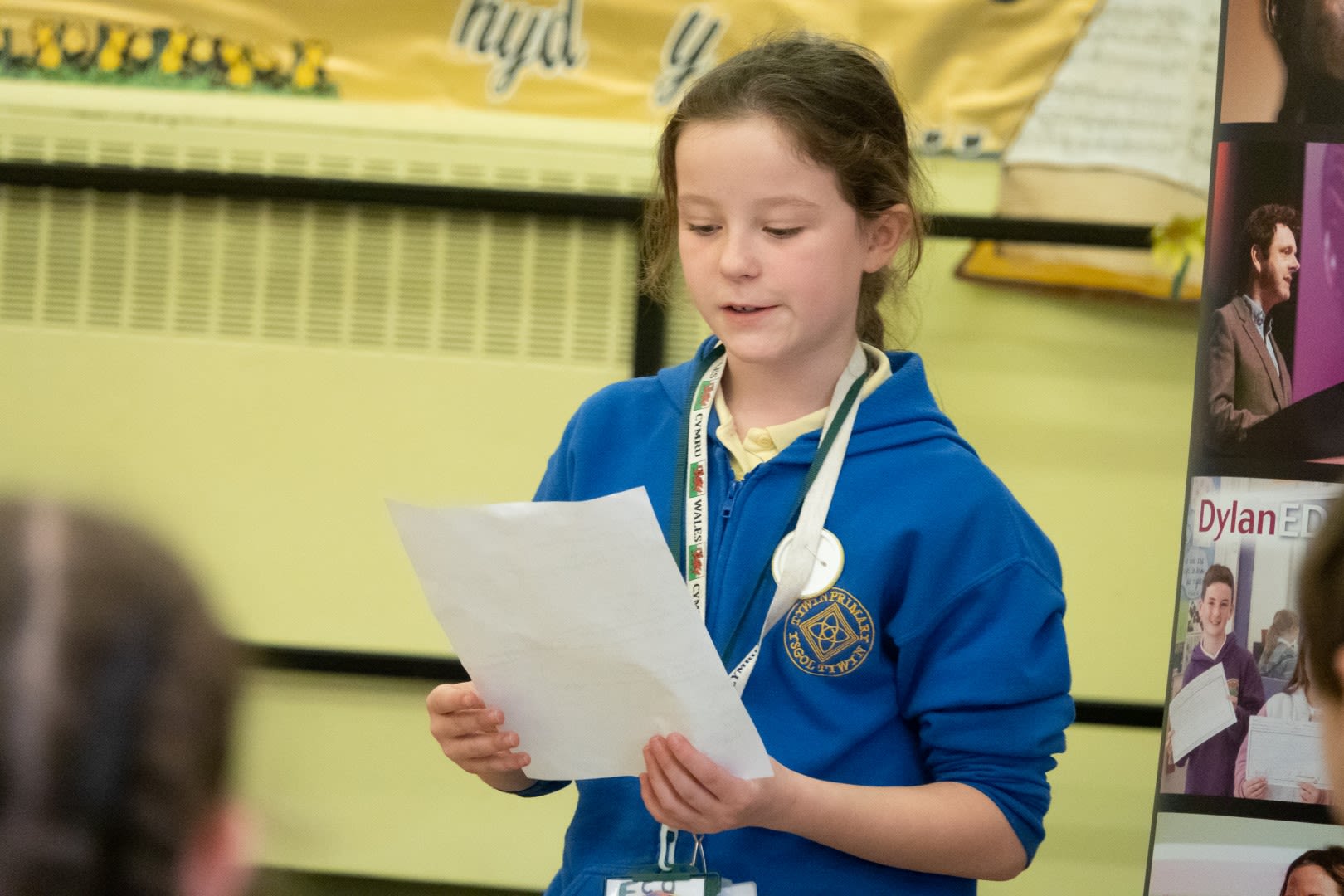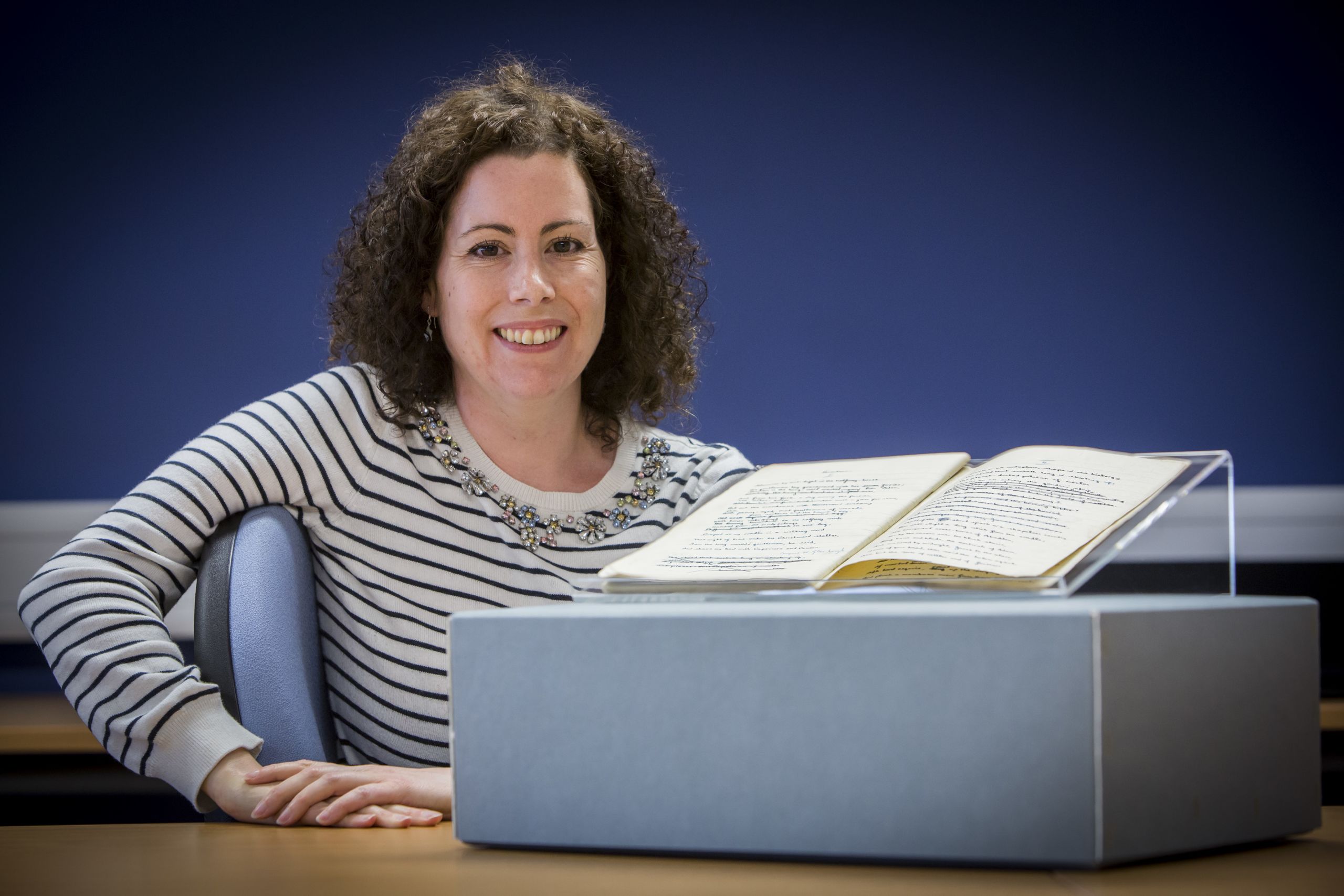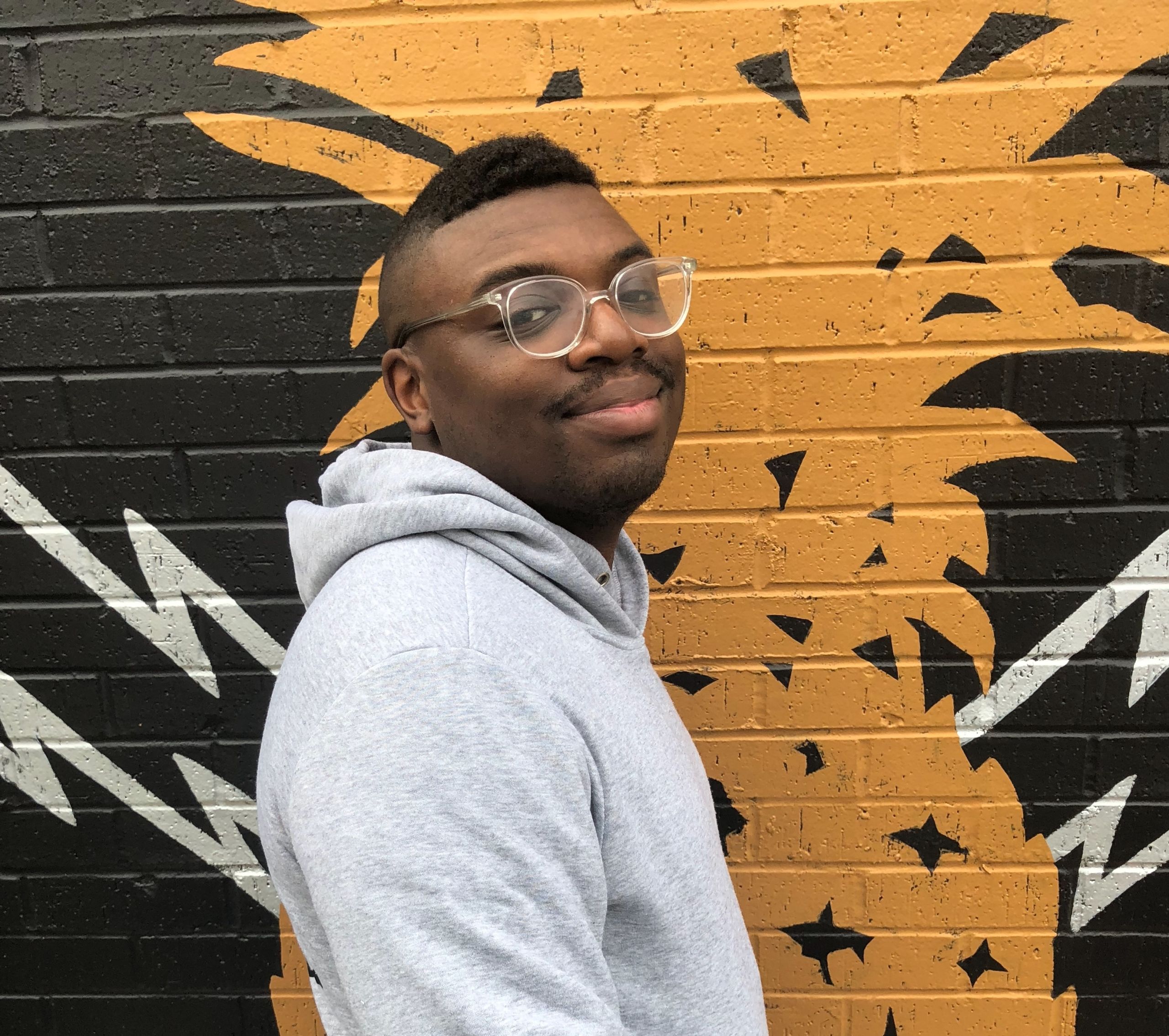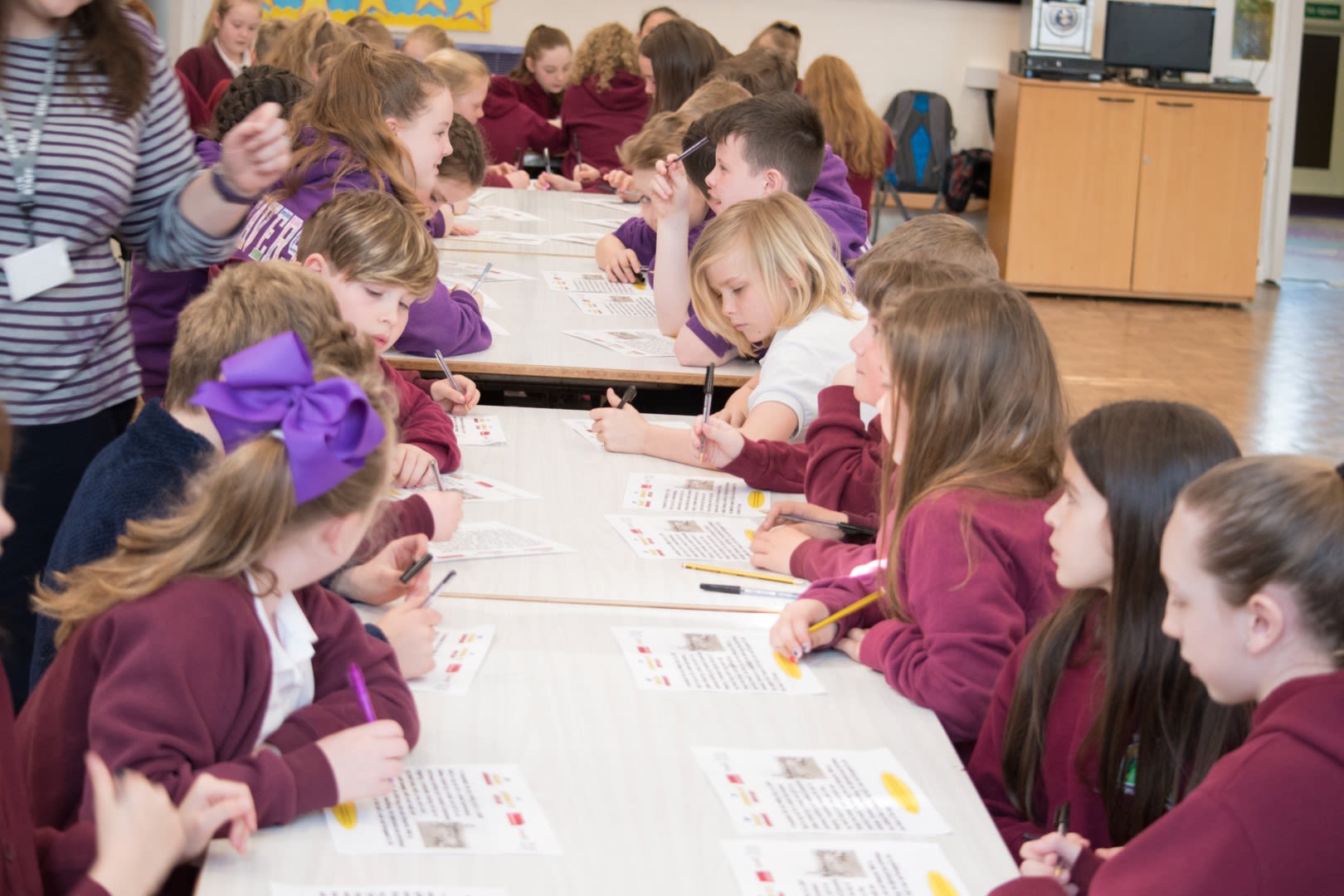One word, one line, one verse:
How Swansea University sparks young people's imagination with the work of Dylan Thomas

Uncompromising, ambitious, zealous, media-savvy and environmentally-aware: you can see why Swansea poet Dylan Thomas might speak to today’s younger generation.
Born in 1914, Dylan was the quintessential adolescent writer. By his twenties he had written numerous drafts of some of his most famous poems. By thirty he had already blazed like a meteor across the world of poetry, writing some of the finest lines in the English language. He did not go gentle: and sadly, his creativity was cut short at the age of 39 when he passed away in a New York hospital.
But Dylan Thomas soon became a cultural icon. His devotees include two US presidents and a young musician called Robert Zimmermann, who changed his name to Bob Dylan, reportedly in his honor.
International in outlook and internationally renowned, yet rooted in Swansea and Wales, Dylan Thomas’ craft and graft were embodied in the slogan which dominated part of Swansea’s streetscape to mark his 2014 centenary: ‘More Poetry is Needed’.[i]

Universities need to connect with their key audience and communities. At Swansea University, more Dylan Thomas does just that. His work and name help us to reach young people.
His granddaughter puts it best. Hannah Ellis is Creative Director of the Dylan Thomas Estate and a Director of the Swansea University Dylan Thomas Prize.
One word, one line, one verse from my grandfather’s work can trigger the imagination and unleash creative potential - Dylan can engage young children, students and the global community.
Here are some examples to show what she means:
The Swansea University Dylan Thomas Prize – one of the most prestigious awards in the world for young writers, it is awarded annually to the best published literary work in the English language by an author aged 39 or under.
The Prize celebrates literary excellence and creativity across all genres. It brings international young writers to Swansea to engage with our students and local school children / young adults, and it showcases Wales to the World. Among our many collaborations are partnerships with the Hay Festival, British Council, Save the Children and the Jaipur Literature Festival, ‘the biggest literary show on earth’.
DylanED – the educational strand of the Dylan Thomas Prize, it encourages young people to generate their own creative voices and develops student ambassadors for literature and creativity through workshops, storytelling, competitions and internships.
The Dylan Thomas Prize Module – a ‘live’ module for final year undergraduates focusing on the annual Prize longlist and enabling students to become ‘Dylan Thomas Prize interns.'
- [i] The artwork formed part of a Dylan Thomas 100 project in 2014 and was produced by Jeremy Deller.
- Photo credit: Hannah Ellis, Creative Director of the Dylan Thomas Estate

Inspiring new Dylan researchers and resources:
1) Dylan’s ‘lost’ notebook – in 2014, Swansea University bid for Dylan’s lost fifth notebook and was successful in bringing it home to our Richard Burton Archives, where it can inspire new generations of young researchers. The first of those was Dr. Adrian Osbourne, whose PhD research on the notebook led to the publication of an annotated manuscript edition (Bloomsbury 2020) with co-editor and Dylan Thomas scholar, Emeritus Professor John Goodby.
2) Our growing ‘Dylan’ collections – housed at the Richard Burton Archives, Swansea University’s Dylan collections offer opportunities for exciting new student projects and school resources. As well as the fifth notebook, we have early poetry manuscripts and two special collections: one of rare books and papers from Honorary Fellow and ‘Dylan Thomas guy’ Jeff Towns; and a second kindly gifted by the family of the late Michael Bogdanov, Honorary Fellow, esteemed Theatre Director and an indefatigable collector of Dylan Thomas ephemera.
3) Dylan Live - a multi-media performance project (lecture, poetry, jazz, hip-hop, animation) drawing on Professor Daniel Williams’ research. Commissioned by Literature Wales and supported by the British Council, it toured internationally and was included in a digital platform for use in schools and in the educational Dylan Thomas ‘Rock and Roll Poet’ website.
“Dylan Thomas is Swansea,” says Dr. Elaine Canning, Executive Officer and a Director of the Swansea University Dylan Thomas Prize. “He is at the heart of what he called our “ugly, lovely” seaside city, his legacy helping to make today’s Swansea such a culturally vibrant place. A literary giant around the world, he also deserves pride of place amongst our students and our local schools, supporting the University’s recruitment, but also its civic mission.”

Bryan Washington, winner of the 2020 Swansea University Dylan Thomas Prize. [Photo credit: David Gracia]
Bryan Washington, winner of the 2020 Swansea University Dylan Thomas Prize. [Photo credit: David Gracia]
As Swansea University marks its centenary in 2020, our Dylan Thomas work with young people seems especially apt. Who knows what future poets, what dreams and talents, his legacy may inspire?



